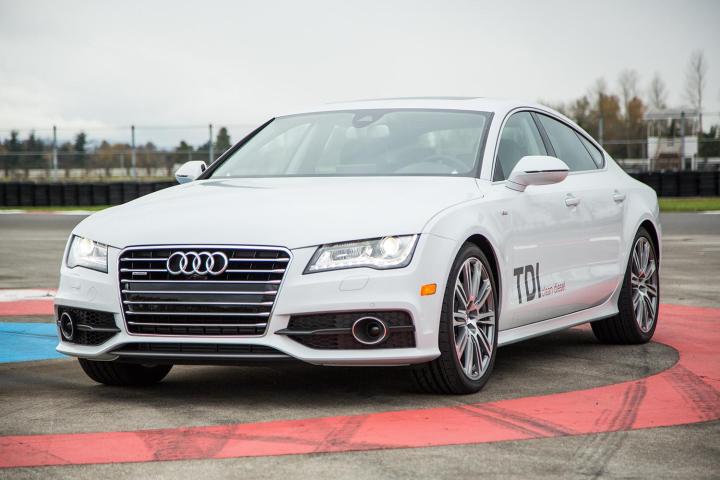
In a public statement released Tuesday, Porsche said it was stopping sales of 2014 through 2016 Cayenne Diesel SUVs, but it did not admit to any wrongdoing. Audi and Volkswagen apparently followed suit, telling dealers to hold models that are now the subject of EPA scrutiny, according to Automotive News (subscription required).
The Audi stop-sale order encompasses 2014 through 2016 A6, A7, A8, and Q5 models equipped with the 3.0-liter V6 diesel engine, as well as 2013 through 2015 Q7 diesels. Volkswagen is also reportedly stopping sales of the 2014 Touareg TDI, which was also equipped with the engine cited by the EPA. The Cayenne, Q7, and Touareg are related models that share a platform.
The EPA recently announced that these models use the same “defeat device” software previously found on 482,000 diesel cars in the U.S. equipped with a different, 2.0-liter four-cylinder engine. The software allows vehicles to detect the conditions of an emissions test, and then turn on pollution-control equipment. The pollution-control measures are deactivated during regular driving, increasing emissions.
This latest finding includes about 10,000 vehicles from the 2014 and 2015 model years and an unknown number of 2016 models, the EPA says. It estimates that these vehicles could be emitting up to nine times the legal limit of certain pollutants. So far, none of the three Volkswagen Group brands have discussed a timeline for a recall, or possible fixes.
While the VW Group admitted guilt fairly quickly when the EPA announced the discovery of the cheating software back in September, it hasn’t made a similar statement about these latest accusations. Porsche called them “unexpected,” and said that it believes the Cayenne Diesel was never out of compliance with emissions rules. It noted that all affected vehicles are safe to drive, and advised that customers should continue doing so.


